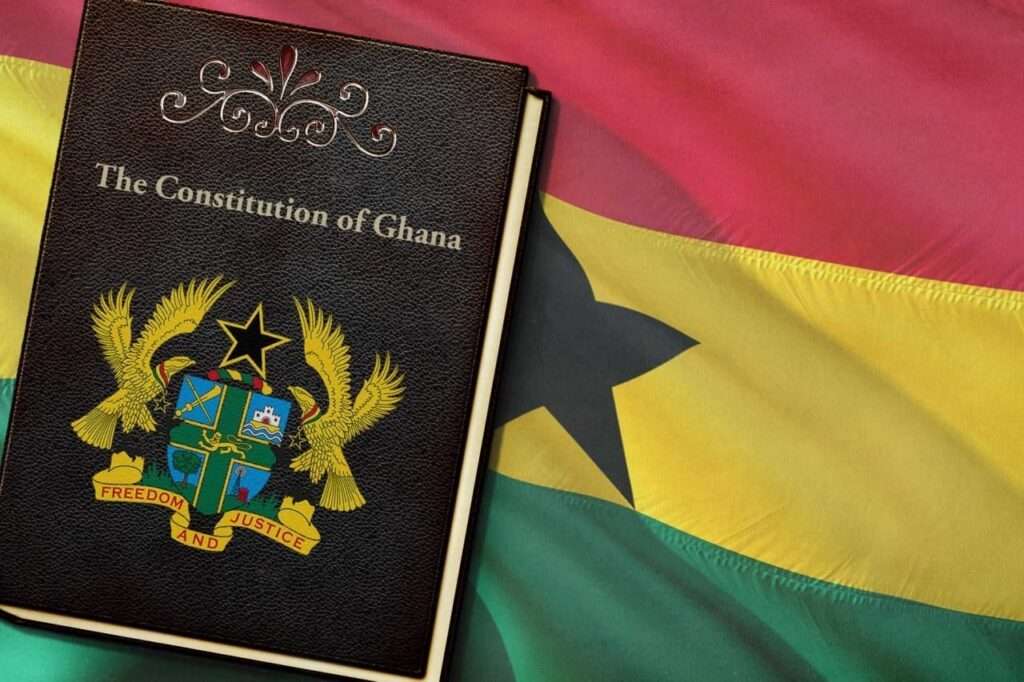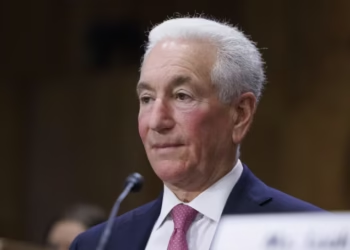The issue of mob justice has resurfaced in Ghana following the murder of immigration officer Stephen King Amoah, whose grieving family has threatened to retaliate against the suspects.
While emotions continue to run high, legal experts are warning that self-help justice poses a serious threat to the country’s constitutional order and undermines the rule of law.
Lawyer Carruthers Tetteh, in an interview with Vaultz News, emphasized that retaliation has no place in a constitutional democracy.
He noted that Ghana is governed by the 1992 Constitution, the country’s supreme law, which makes it clear that anyone who breaches the law is deemed guilty through legal processes—not through personal acts of vengeance.
According to him, the foundation of Ghana’s legal system is rooted in due process.

“No person, whether the accused person or the victim, has the right to take the law into their own hands. That’s why we have the court system and the judiciary.
“So retaliation does not have space in our jurisprudence. It creates chaos in society. It creates tension, and at the end of the day, justice would not be served. So this is not something we should encourage.”
Carruthers Tetteh
Rights Of Accused Persons Guaranteed
Tetteh further drew attention to Article 13 of the 1992 Constitution, which makes it clear that no individual can be intentionally deprived of life except through a lawful sentence handed down by a competent court after conviction for a criminal offense.
This, he explained, underscores why mob justice or retaliatory attacks are unconstitutional, as they bypass the judicial system entirely.
He also referenced Article 19, which firmly establishes the principle that every accused person is to be considered innocent until proven guilty in a court of law.

This provision, he noted, reinforces the need for due process and safeguards the rights of individuals facing criminal charges.
“Due process would have to be followed, evidence would have to be presented, witnesses would have to be called if necessary, and then the judge or the jury would weigh the facts and the evidence, and may come out with their judgment or verdict.”
Carruthers Tetteh
Tetteh further emphasized that individuals facing trial are entitled to legal representation as well as the necessary resources to prepare their defense adequately.
This includes access to time, tools, or even interpreters where required, ensuring that the accused has a fair opportunity to respond to the charges brought against them. “For murder, if the accused person even pleads guilty, they would have to go to trial because of the sentence.”
Legal Aid Scarcity Amid Calls To Stop Mob Justice
Carruthers Tetteh also acknowledged that Ghana’s legal aid system is under-resourced and often ineffective, largely because it is a free service that struggles to attract enough committed professionals.
While the state does provide lawyers in serious cases such as murder trials, the quality of representation is not always guaranteed.
Despite these challenges, he expressed confidence that ongoing efforts to expand the pool of lawyers in the country and to make legal aid more attractive will eventually strengthen the system, as participation ultimately depends on individual choice and commitment.

“We may have videos capturing someone committing a crime or murder. We may have eyewitnesses, but first of all, how sure are you that that eyewitness is telling the truth or is credible? How sure are you that the video evidence is credible, or that it has not been tampered with?”
Carruthers Tetteh
He emphasized that due process through formal trials is the only safeguard against irreversible miscarriages of justice. Once mob justice is carried out, any possibility of correcting a wrongful accusation is lost, even if the victim is later found to be innocent.
To prevent such situations, Tetteh called for sustained public education on the dangers of mob action, stressing that it has no place in a lawful society.
He further suggested that lessons on justice and the rights of accused persons should be incorporated into senior high school curricula, so that young people grow up with a clear understanding of the rule of law and pass that knowledge on to their families and communities.
Concerns Over Police Conduct, Court Security
Addressing allegations that the police may be shielding suspects in Amoah’s case, Tetteh rejected the claims, emphasizing that the police operate under a defined code of conduct and cannot allow public influence to interfere with their legal duties.
He clarified that once an accused person is arrested, the law requires that within 48 hours, the accused must be presented before a court for a judge to determine whether he or she should be remanded or sent to prison, which means the police are acting within established procedures.

Tetteh also criticized attacks on defense lawyers, describing such actions as inappropriate and counterproductive in a civilized society.
According to him, resorting to violence in the name of justice only creates further crimes and undermines the very legal process people seek to uphold.
“The law will still work and work within the procedure as prescribed. It is not affected by emotions. But we can appreciate it because, as I said, it’s a family member, a relative, and it is normal to express frustration, but we should also respect the rules of justice.”
Carruthers Tetteh
Tetteh wrapped up his remarks by expressing confidence in Ghana’s justice system.
He emphasized his trust in the judiciary and the police, maintaining that the legal process would ultimately ensure justice for both the accused and the family of the victim.
READ ALSO: Kemi Badenoch Opens Up On Racism Faced



















